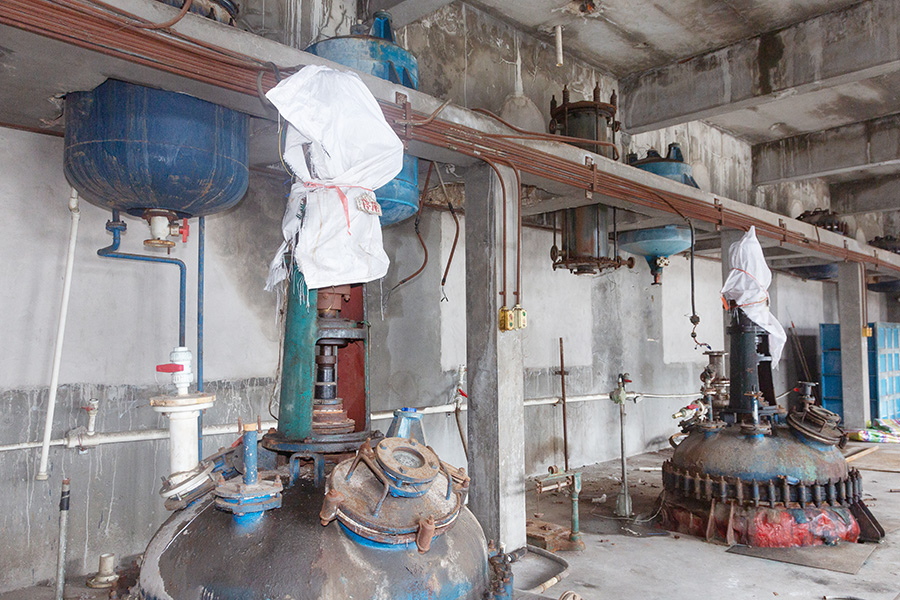In many industrial applications, closed-loop water systems often encounter water with high mineral content, which can lead to scaling and corrosion issues. Scaling—typically caused by calcium, magnesium, and other minerals precipitating out of water—can create a layer of deposits that reduce heat exchange efficiency and, over time, cause significant damage to equipment. To address these challenges, corrosion inhibitors, such as the phosphorus-free closed circulation water corrosion inhibitor, are essential in maintaining the health and longevity of heat exchange systems. But how does this product perform in systems with high mineral content or scaling tendencies? Let’s explore how this inhibitor effectively manages these conditions, ensuring both corrosion protection and system efficiency.
The closed circulation water corrosion inhibitor is specifically formulated to tackle complex water conditions. One of the standout features of this product is its ability to form a dense, protective film on metal surfaces within the system, providing a robust barrier against corrosion. This film is not just a short-term solution but is designed to last under continuous operating conditions. When applied to systems with high mineral content, the inhibitor doesn’t just reduce the rate of corrosion—it actively helps to manage the scale formation. In systems prone to scaling, the minerals in the water may precipitate, leading to the formation of calcium carbonate or other similar deposits on heat exchanger surfaces. While typical inhibitors might struggle in such environments, this product is uniquely designed to minimize the buildup of these minerals. The high-efficiency polymers and special surfactants in the formula prevent mineral precipitation by dispersing the minerals and promoting a smooth flow, reducing the likelihood of scaling.

The adaptability of this corrosion inhibitor is one of its key strengths, especially in systems where water quality fluctuates or where scaling is a common problem. When used in high-concentration ratio systems—where the water's mineral content is already elevated—this inhibitor maintains stable performance, providing continuous corrosion protection and keeping scale formation at bay. In fact, the inhibitor's ability to work in these high-challenge environments without compromising performance is one of the reasons it is so widely used in industries such as power generation, petrochemicals, and steel manufacturing. In these industries, where systems often operate with closed-loop water systems at high temperatures and mineral concentrations, preventing both scaling and corrosion is critical to minimizing downtime and reducing costly repairs.
An interesting aspect of the closed circulation water corrosion inhibitor is its compatibility with other water treatment agents. Many systems require a combination of treatments to address both microbiological concerns and scaling. This inhibitor is designed to work alongside biocides and scale inhibitors, creating a comprehensive water treatment solution. Unlike some traditional inhibitors that may struggle when used with other additives, this product offers superior versatility. In a system prone to scaling, a biocide might be needed to manage microbial growth, while a scale inhibitor works to prevent mineral deposits. The closed circulation corrosion inhibitor complements these treatments, ensuring that the system remains protected from corrosion while the scale is kept in check. This multi-layered approach is often more effective than relying on a single treatment.
Furthermore, its phosphorus-free, environmentally friendly formulation is another reason why it excels in challenging environments. Phosphorus-based corrosion inhibitors, while effective, can contribute to environmental pollution when they are discharged, particularly in water bodies. The closed circulation inhibitor, however, adheres to stringent environmental discharge regulations, making it a safer choice for industries that operate in environmentally sensitive regions. This environmentally conscious design does not come at the expense of performance. In fact, the inhibitor’s high adaptability to varying water qualities and mineral concentrations, combined with its long-lasting protection, makes it a particularly well-suited solution for systems where both scaling and corrosion are persistent concerns.
 En
En
 عربى
عربى 中文简体
中文简体

